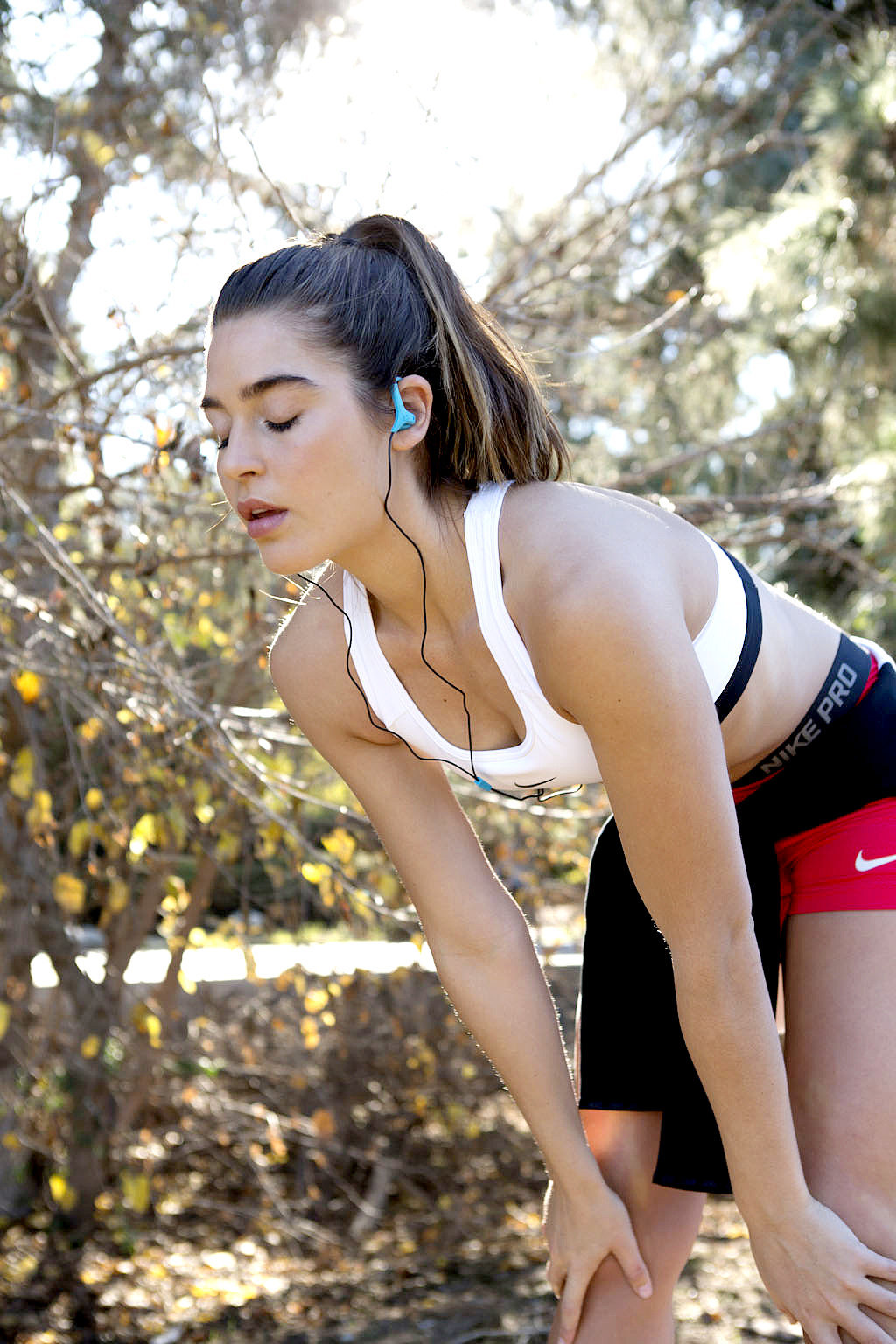
If you’ve been running for a long time, you likely know the plight of runner’s stomach. Either on a run or almost immediately after, you’re hit with some kind of stomachache: either a burning, acidic feeling; intestinal distress; bloating; pain; or feeling backed up. In particularly unlucky cases, it’s some kind of combination of the aforementioned ailments.
So what’s the solution? We chatted with two trainers from the private gym DIAKADI in San Francisco who each have an extensive background in running and physiology, Elijah Markstrom and Angela Tieri (USA track and field level one coach and Road Runners Club of America coach).
Both trainers emphasized the importance of what you eat (and what you don’t eat), in addition to several other key tips to preventing a run-induced stomach ailment. Here’s what they had to say.
Before Your Run
Preparation is key to preventing a stomachache. Here’s how to eat prerun.
- Give yourself two hours. Elijah gave us a good rule of thumb: finish your meal or snack no less than two hours before the workout or run.
- Keep it simple. Your meal shouldn’t include anything hard to digest. Leading up to a race, Angela said she sticks to “a very plain diet, which mostly consists of white rice, chicken breast, bagels, and nut butter.”
- Keep protein low until later. It can be difficult to digest, so limit your protein intake before a run.
- Avoid red meats. In lieu of beef and pork, Elijah suggests whey protein, which is more easily digested.
- Avoid fats. “Fat can increase total gastric emptying time, because only certain amounts can be let out of the stomach per 15 to 30 minutes,” said Elijah. Angela cuts fatty foods out entirely for two days leading up to a race.
- Don’t have too much fiber. On that same note of digestion, fiber takes a long time to digest, and like fat, it decreases gastric emptying. Don’t overdo it.
- Keep your meal small. You just need enough to “top off liver glycogen stores drained from the night and boost blood sugar a bit,” said Elijah. Angela told us that lunch is her biggest meal the day before a race, and dinner is small enough to keep her just moderately full — not stuffed.
- Drink water. Don’t let yourself get dehydrated, as dehydration is a common culprit with stomach issues.
- Take Imodium. Angela suggested this as a precaution the night before a race or long run.
Combining those tips, the ideal meal is a “low-fiber, low-protein, low-fat (fewer than 20 grams, relatively high-carb meal (50 grams) finished two hours before start of warmup.”
During Your Run
- Don’t overfuel. You want to make sure you’re not going over a standard caloric intake during your run. “Usually this is between 300 to 400 calories per hour working out,” said Elijah. “If you’re slamming down Gu every 15 minutes during the end of a race, you will have some issues.” Which leads us to the next tip . . .
- Ditch the gels, or cut down. Gels might be behind your belly issues, and unless you’re running a race or completing an endurance event, it might be best to skip. For every gel you do have, you need at least a cup of water to dilute it. “If you don’t dilute it,” warned Angela, “the gel will draw water from the intestines and cause cramping and can lead to dehydration.” Not fun.
- Balance your hydration. Angela also warns about drinking too much water without enough electrolytes. “The water can’t empty from the stomach fast enough, things get sloshy, and that can lead to nausea and even vomiting.”
- Get electrolytes. Low-sugar electrolyte drinks are an excellent choice to keep you hydrated on a long run, and they won’t agitate your digestive system.
POPSUGAR, the #1 independent media and technology company for women. Where more than 75 million women go for original, inspirational content that feeds their passions and interests.
Source: If You've Ever Had Stomach Pain on a Run, You Need to Read This : PopSugar






